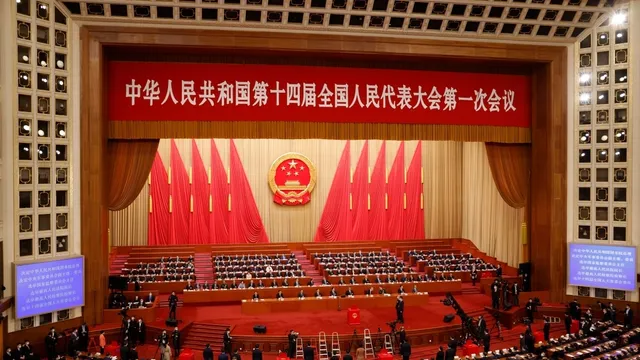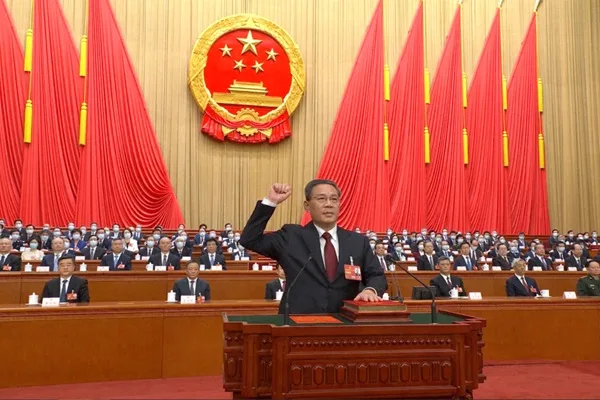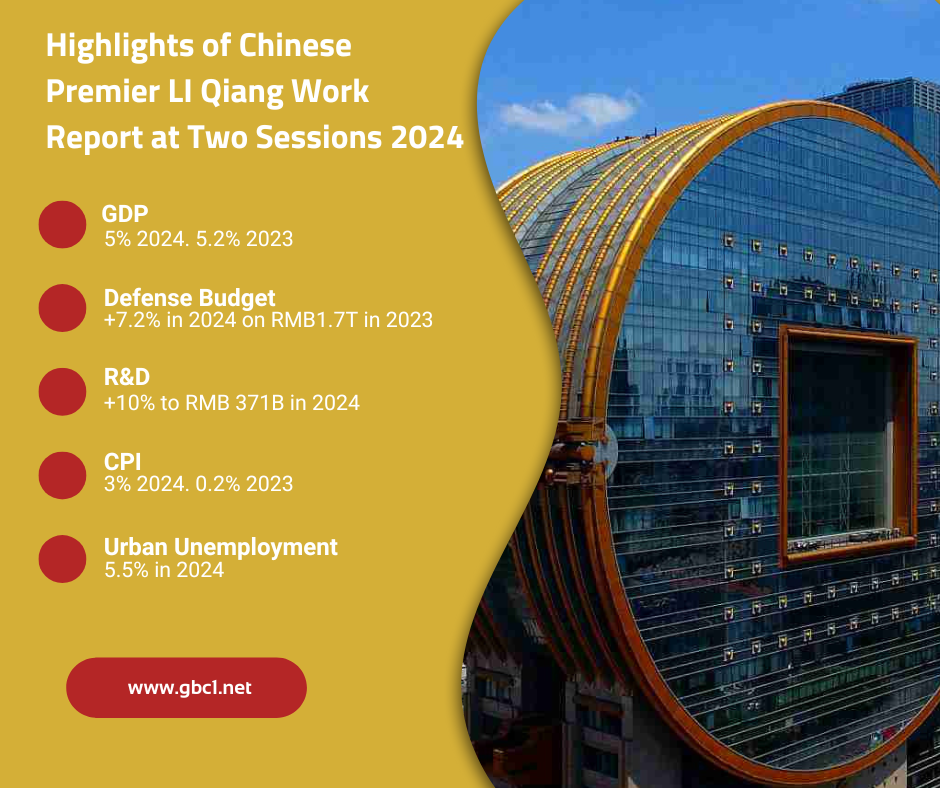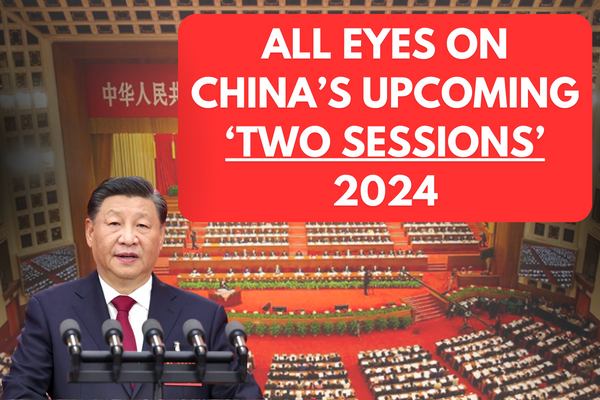China Pursues ‘High-Quality Development’ and ‘New Productive Forces’ to Uplift Economy
In the face of an unfavorable global environment, China initially came up with its ‘double circulation policy’ which aims to not only rely on exports but also to boost domestic consumption to boost economic growth.
However, the uptick following the COVID was short-lived and general consumer sentiment is still very cautious when it comes to spending. The feeling can be traced to the bubble burst of the property market which was where most Chinese put their savings. For decades, prices have been going up and up, but now apartment prices are coming down and certain projects have been halted.
It is estimated that the real estate accounts for as much as 30% of the Chinese economy, so any ‘course correction’ can have significant downsides. Evergrande’s demise and Country Garden’s challenges spell trouble as the two Chinese housing giants face an uphill battle.

In that context, China is actively seeking ‘New Productive Forces’ to revive its economy and to avoid the middle-income trap. Some of the new areas where China plans to focus on new sectors such #EV, #AI and Space.
At the end of the day, Premier Li Qiang reported a 5% GDP growth target for 2024, which is more or less the same level as in 2023. Youth unemployment reached an all-time high and the Central Government rather set to cap Urban Employment at a maximum of 5.5%. To help reach this target, China will have to create some 12 million jobs in cities annually.
In 2023, inflation was merely 0.3% and the target for 2024 is 3%. In view of economic headwinds, China is risking deflation and a 3% inflation rate is considered a ‘normal rate’ to avoid deflationary pressures.
In the past, China has put forward sizeable Stimulus Packages to boost the economy, but such a policy was not without its collateral issues. Now, China has decided to issue Special Long-Term Sovereign Bonds worth RMB one trillion to finance development projects.
Structural weaknesses affect local governments saddled with mountains of debts and a sluggish property market which was once a cash cow. In an attempt to shore up the finance of local governments, the Central Government will allow Local Governments to issue another nearly RM 4 trillion of Special-Purpose Bonds.
Nevertheless, the Central Government earmarked a RMB 700 billion budget to give a much-needed boost to the economy. The figure is relatively modest when compared to previous Stimulus Packages and given the size of the Chinese economy.

In the area of new sectors, China has set itself as target to dominate the global market for EV. In the past, China has applied the same strategy on PV panels, Rare Earth Elements and even 5G. Similarly, it ambitions to be seen as a leader in AI, but the advent of ChatGPT and Generative AI from the USA showed that there is still some catching up to do. Thus, China announced its #AIPlus Initiative in order ‘not to be left behind.’
In a bid to attract FDI, China plans to pursue the program for Reforms and Opening Up. In particular, certain restrictions on foreign investment in the financial and manufacturing sectors will be reconsidered.
On a related note, in order to attract more foreign tourists, China has started easing visa requirements for a series of countries. China will also ease the financial interconnectivity with foreign cards in order that tourists can also enjoy the benefits of digital payments services such as Alipay or WeChat Pay.
Another leitmotiv that keeps coming up is the promotion of ‘High-Quality Development’ which generally means green, innovative and viable projects. In that respect, observers note that an acceleration of the #EnergyTransition would fit the bill under high-quality development.

Another trend that one can discern is the promotion of #FTA in an attempt to boost trade and cement the position of China as the top trading partners with other countries. In that respect, China will work to push forward the Comprehensive and Progressive Agreement for Trans-Pacific Partnership (#CPATTP).
At the end of the day, the Communist Party of China (CPC) would like consumers to get over their property woes and come back to a better sentiment which will be conducive to economic growth.

